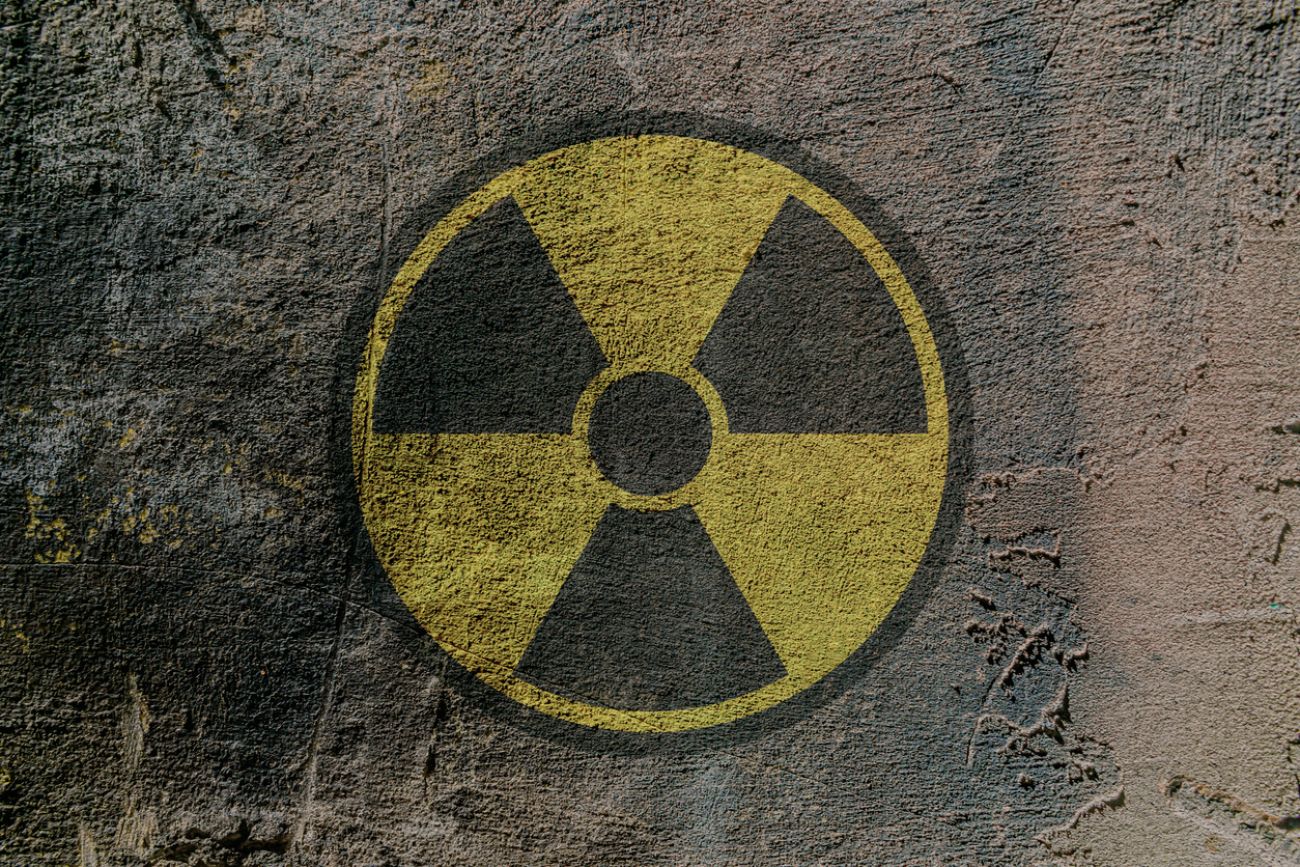Nuclear waste from Manhattan Project headed to southeast Michigan landfill

Sept. 19: Michigan judge halts Manhattan Project radioactive waste from landfill
A southeast Michigan waste disposal site will soon be home to nuclear waste from the Manhattan Project, the World War II effort to develop an atomic bomb.
The U.S. Army Corps of Engineers will transport contaminated soil, concrete, and groundwater to the Wayne Disposal facility in Belleville, about 30 minutes outside of Detroit. The facility is owned by Republic Services, a private waste management company.
Moving the waste is part of a larger remediation project for the Niagara Falls Storage site, which the corps manages. Transferring waste from contaminated sites to a few waste disposal facilities isn’t unusual, said Paul Wilson, a professor of nuclear engineering at the University of Wisconsin-Madison.
“There's dozens of small sites like this around the country that were involved in the Manhattan Project at some time,” he said, and consolidating the waste from those sites is “a prudent policy.”
Wilson emphasized that he cannot speculate about this particular facility or cleanup project. He provided background information about how the United States typically disposes of nuclear waste.
“In modern times, we have good regulation in place and good standards in place to safely store and manage this material.” How the corps transports that material depends on how radioactive it is, its source and several other variables, he said.
This article is part of The Great Lakes News Collaborative, which includes Bridge Michigan, Circle of Blue, Great Lakes Now at Detroit Public Television, and Michigan Radio. It unites newsroom resources to report on the most pressing threats to the Great Lakes and drinking water supplies, including pollution, climate change, and aging infrastructure. The independent journalism is supported by the Charles Stewart Mott Foundation.
The material headed to Belleville is leftover residue from uranium extraction, according to the corps’ website. The radioactivity levels of the waste are very low, according to a statement from the Michigan Department of Environment, Great Lakes and Energy.
The material will be transported and stored as safely as possible, said Kevin McNamara, the supervisor for Van Buren Township, where the facility is located.
“We worked very closely with this company to make sure our residents are safe,” he said. “And we're not going to jeopardize our residents.” The trucks carrying the waste will follow a required route that avoids homes and businesses, he said.
The township has been in conversation with the facility and the corps for a few years, McNamara said. But it appears a Detroit Free Press article is the first time the wider public has heard about it.
Related:
- Michigan urgently needs better tests for beach contamination, report finds
- Automated electric bus tours coming to Sleeping Bear Dunes
- From pet to 'monster.' The battle to rid Michigan's Glen Lake of giant koi
The corps held multiple public meetings earlier this year for residents near the Niagara site. Representative Debbie Dingell (D-Ann Arbor) and Wayne County Executive Wayne Evans are planning a town hall meeting, McNamara said.
When asked for comment, Republic Services Senior Manager of External Communications Melissa Quillard said the site was fully qualified to store the materials.
“Wayne Disposal is a Subtitle C landfill that is highly engineered with multiple safety measures in place and frequent inspections and systems tests to ensure everything is operating as it should,” she said. “The material that will be accepted from the Niagara Falls Storage Site falls within the permit guidelines and will be managed safely, responsibly and in compliance with all local, state and federal regulations.”
McNamara said the corps, facility and township were taking extra precautions.
“It's probably vast overkill, but that's okay,” he said. “Overkill is okay.”
Other local leaders felt differently.
Wayne County has been treated as a dumping ground, Warren Evans, the county executive, said in a statement.
“What is particularly upsetting about this upcoming transport is the message this sends — yet again — to those residents of Wayne County who have been traumatized by the effects of nearby hazardous waste dumps and oppressive chemical odors for so many years,” he said.
State Representative Reggie Miller (D-Van Buren Twp) called for more transparency and communication in transportation of hazardous materials, according to a statement.
“Like always, it is absolutely necessary to protect our community’s right to safety, most certainly when it comes to the transportation of hazardous materials via our public roads and into our landfills,” she said.
State Sen. Darrin Camilleri, D-Brownstown Township, also weighed in. He called news of the waste shipment "alarming," saying in a statement that there needs to be a larger conversation about hazardous waste management in the U.S. "Wayne County is the most populous county in Michigan, and our state is surrounded by 20% of the world’s fresh water. We cannot continue to be America’s dumping ground for toxic waste. Our district and our community deserve so much better," Camilleri said.
Wilson, the nuclear engineering professor, said while the practice of moving hazardous waste for permanent storage is normal, it does raise questions about environmental justice.
“I think one of the big questions, to veer into the social sciences, is why do we choose these places?” he said.
The Michigan Department of Environment, Great Lakes, and Energy's statement on the waste provided some clarification.
“Wayne Disposal is the closest hazardous waste landfill to Lewiston, New York where these materials are currently stored and overseen by the [corps],” the department said.
When asked for details about the waste material to be transported, Republic Services said company policy does not allow them to “provide information about anticipated customer volumes or timelines.”
Michigan Environment Watch
Michigan Environment Watch examines how public policy, industry, and other factors interact with the state’s trove of natural resources.
- See full coverage
- Subscribe
- Share tips and questions with Bridge environment reporter Kelly House
Michigan Environment Watch is made possible by generous financial support from:
Our generous Environment Watch underwriters encourage Bridge Michigan readers to also support civic journalism by becoming Bridge members. Please consider joining today.
See what new members are saying about why they donated to Bridge Michigan:
- “In order for this information to be accurate and unbiased it must be underwritten by its readers, not by special interests.” - Larry S.
- “Not many other media sources report on the topics Bridge does.” - Susan B.
- “Your journalism is outstanding and rare these days.” - Mark S.
If you want to ensure the future of nonpartisan, nonprofit Michigan journalism, please become a member today. You, too, will be asked why you donated and maybe we'll feature your quote next time!






